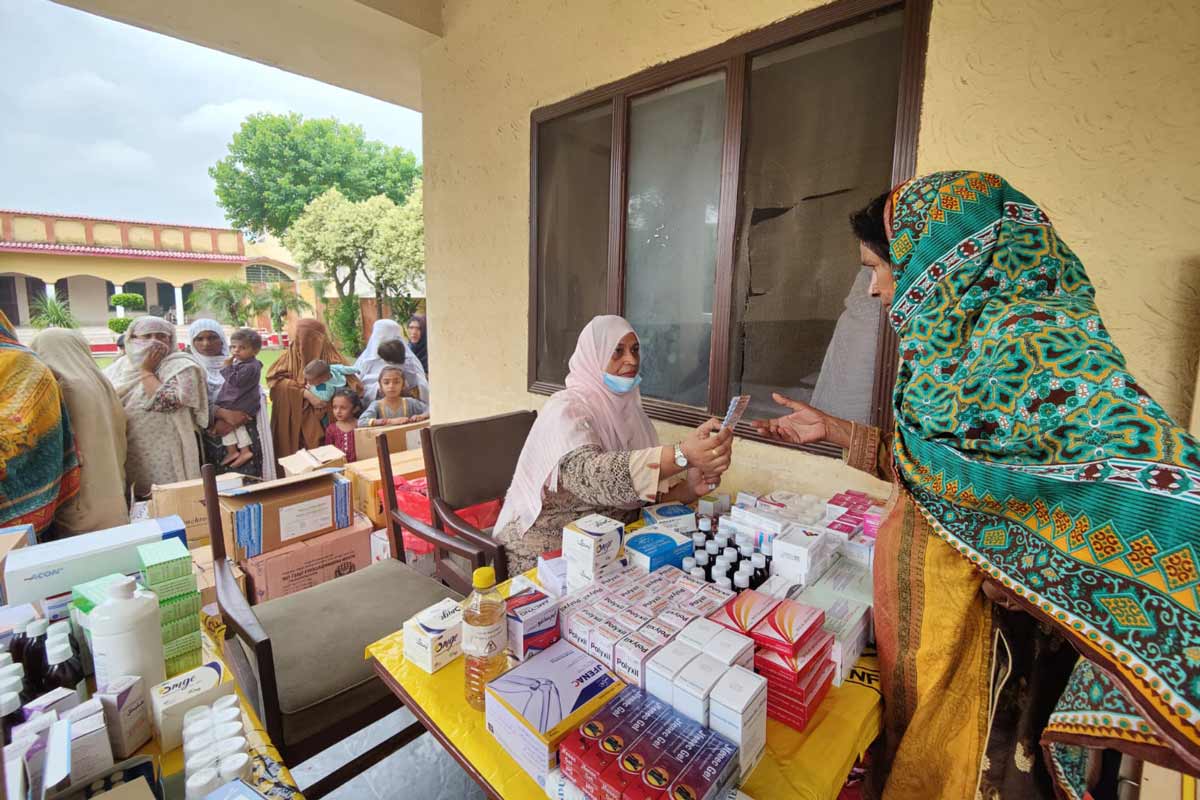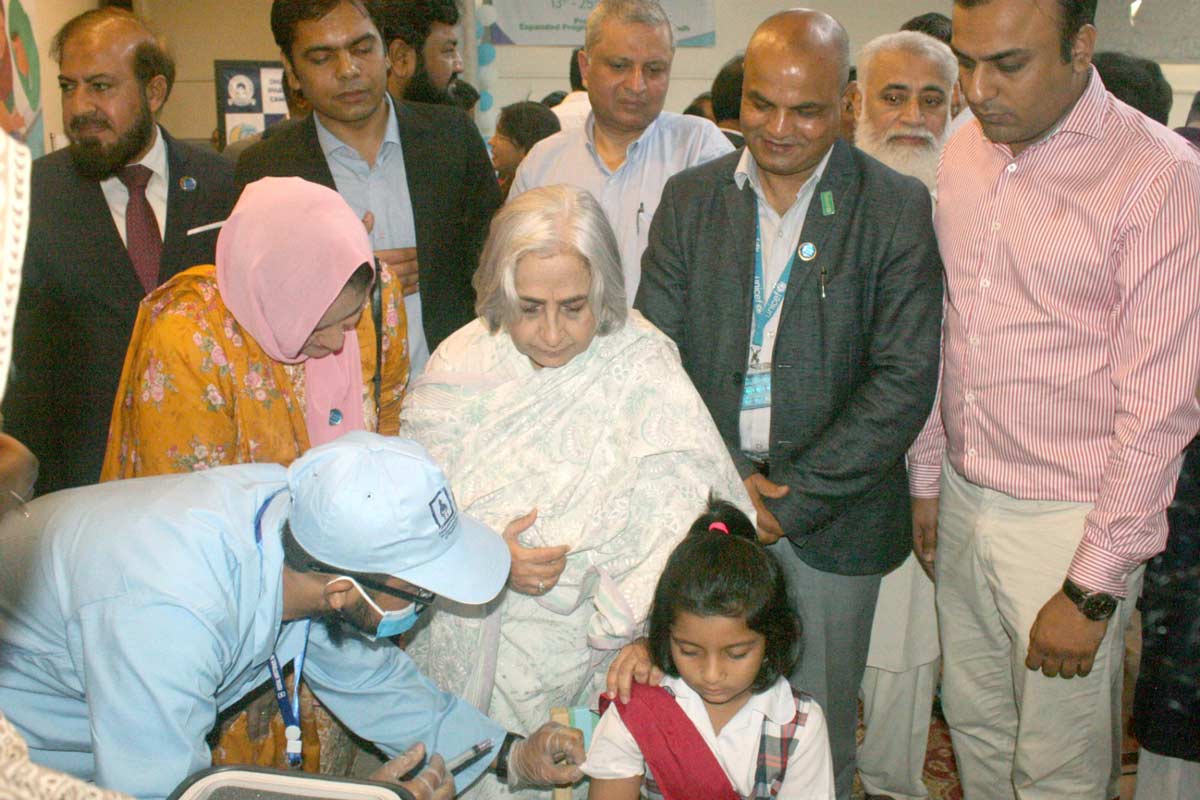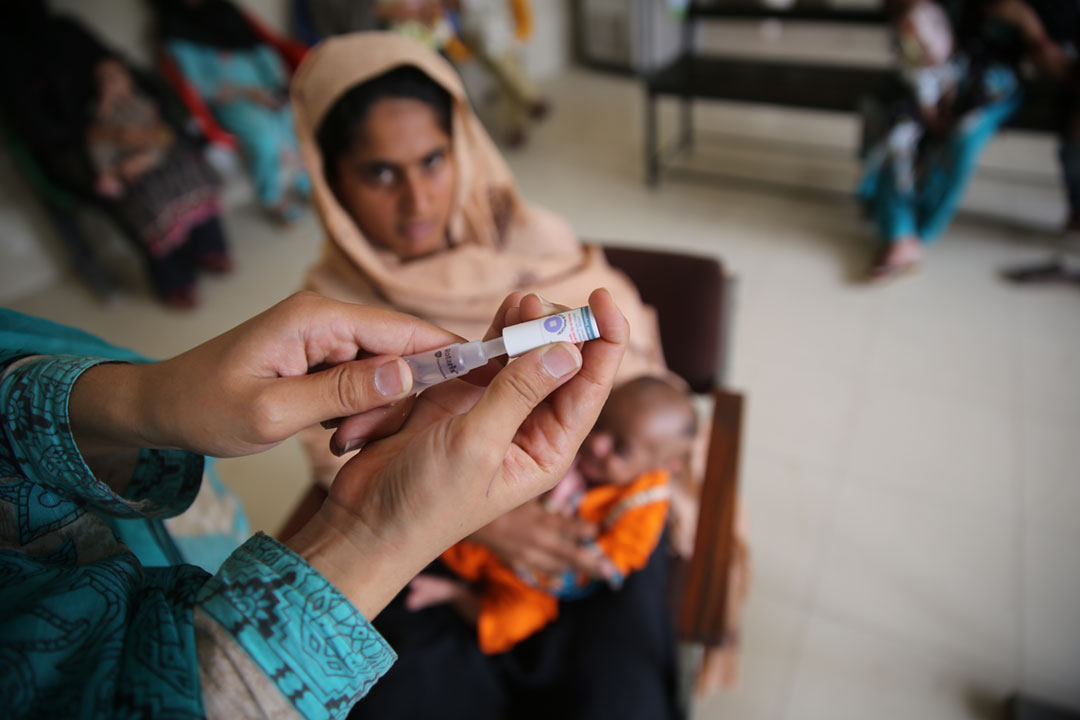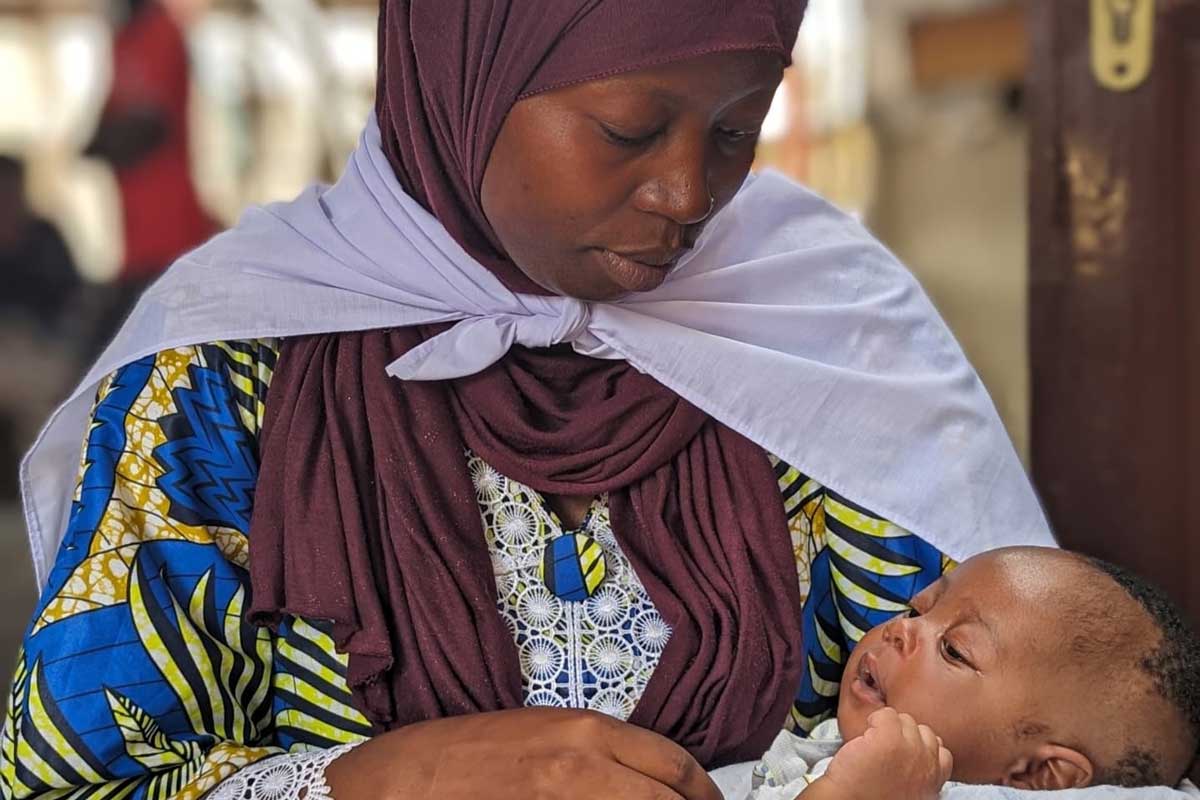Pakistan vaccinates to contain hepatitis A risk among flood-displaced people
Millions in Pakistan remain homeless and unusually vulnerable to infectious diseases as a consequence of last year’s floods. In camps, hepatitis A, not usually an urgent threat, is a growing worry.
- 3 January 2023
- 4 min read
- by Rahul Basharat
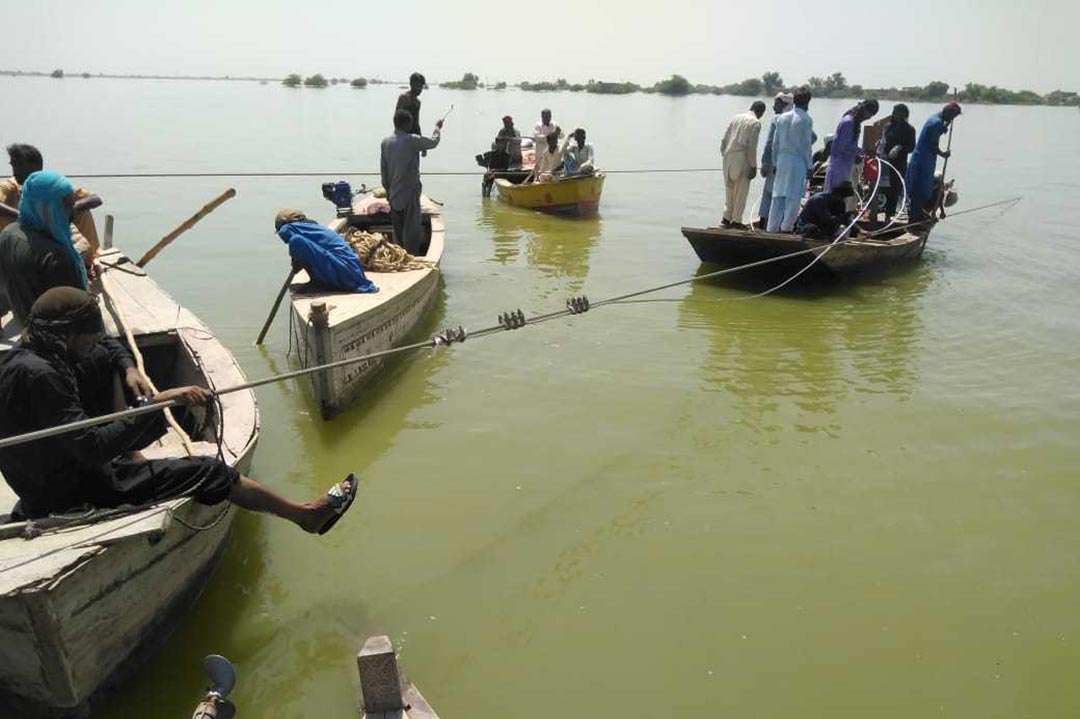
Rukhshanda Bibi of Sukkur district, which lies on the Indus River in south-eastern Sindh, lost her mud house and cattle when last year's devastating floods tore through the area. She wasn't alone – hundreds of nearby houses washed away in the worst months of the monsoon.
Now she, like many others, is living in a relief camp and waiting for rehabilitation. Although her life savings sank in the flood, she says she feels blessed because her children remained unhurt.
But the danger hasn't passed. Infectious disease outbreaks continue to ripple through the flood-hit areas, putting the estimated eight million Pakistanis still living close to flood zones at elevated risk.
"The floods have created an abnormal situation where both adults and children must be vaccinated for protection from hepatitis A, which reflects the massive scale of the devastation."
In an ongoing battle with this second-round crisis, federal and provincial health authorities have established special health camps to vaccinate people, particularly children, against illnesses such as diarrhoea, cholera, polio, and hepatitis.
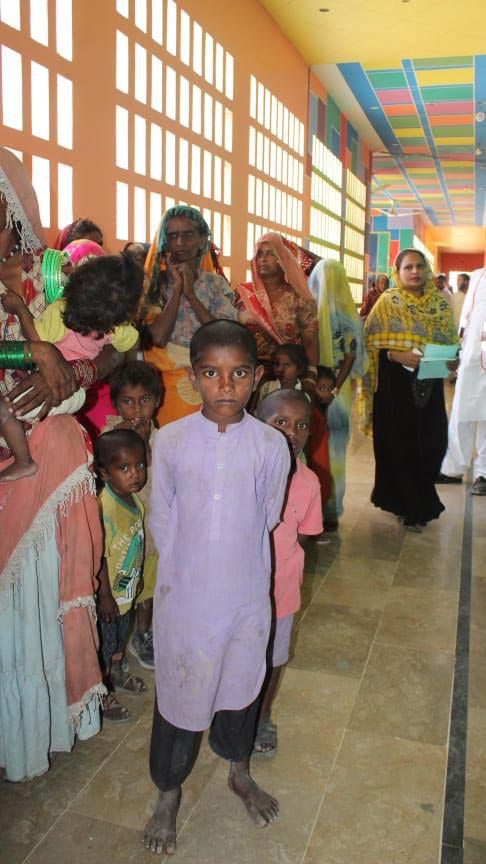
Credit: Ministry of National Health Services
"Every next child and adult in the relief camp is now suffering from different diseases and doctors say it is because of factors like the contamination of water," Bibi says.
Have you read?
She says that her children were vaccinated for polio earlier and now she has approached a health facility to get the hepatitis A vaccine.
"Government is providing medicines to us as much as it can but there are countless people [in need]. People are now seeking mercy and do not want any deaths and suffering of adults and children due to disease outbreaks," she adds.
A medical officer at the health camp, Dr Sana Malik, says that the number of patients suffering from infectious diseases in the camps is on the rise, confirming that one of the main causes is contaminated water.
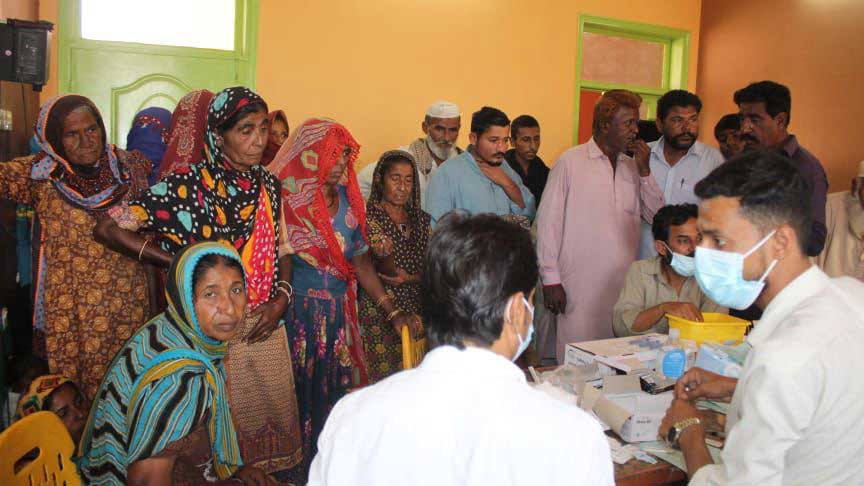
Credit: Ministry of National Health Services
"The lives of displaced people are not normal, with a shortage of basic health and life necessities. We are advising people to drink clean water and maintain hygiene, but it is not easy for them, because it is a question of availability and accessibility," she says.
She adds that now the hepatitis A vaccination, which is not part of Pakistan's regular schedule of routine vaccines, has become a need for flood-affected people to contain the outbreak of disease and protect their health.
"The floods have created an abnormal situation where both adults and children must be vaccinated for protection from hepatitis A, which reflects the massive scale of the devastation," she explains.
The risk of hepatitis A – an inflammation of the liver caused by the hepatitis A virus that spreads most commonly by the faecal-oral route – is understood to rise significantly amid poor sanitation and lack of access to safe water, and has been known to occur in massive, explosive outbreaks. Though hepatitis A, unlike hepatitis B and C, doesn't cause chronic liver disease, it can cause potentially fatal acute liver failure in some patients.
That's what Pakistan's government is hoping to stave off. One hundred thousand doses of the hepatitis A vaccine have been provided to the health authorities of the especially hard-hit Sindh and Balochistan provinces, says Sajid Hussain Shah, spokesperson for the Ministry of National Health Services.
"Large communities in Sindh and Balochistan are living in flood relief camps which are highly vulnerable to disease transmission," says Federal Health Minister Abdul Qadir Patel, adding that hepatitis A outbreaks were considered a "high risk".
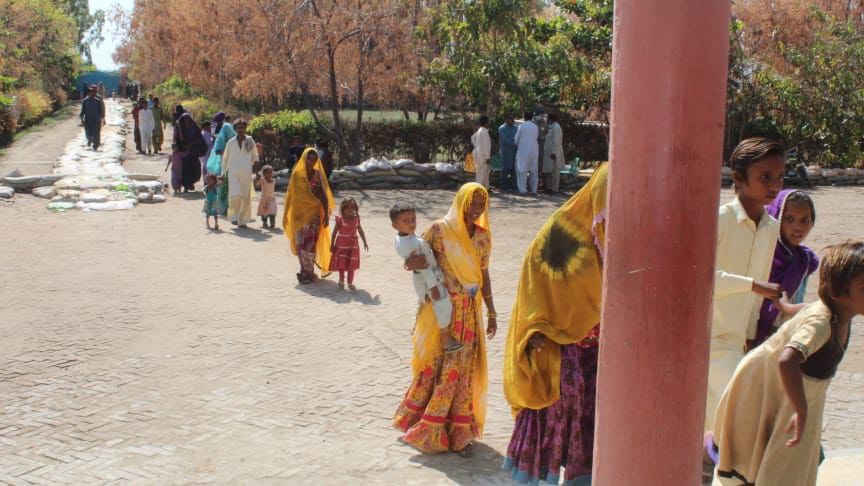
Credit: Ministry of National Health Services
Pakistan's flood crisis is not over, underscores the minister. The country is still suffering the aftermath of last monsoon's deluges, which have been called Pakistan's worst floods in history, and which displaced millions. Providing assistance to flood-affected people continues to be the government's top priority, said Patel.
